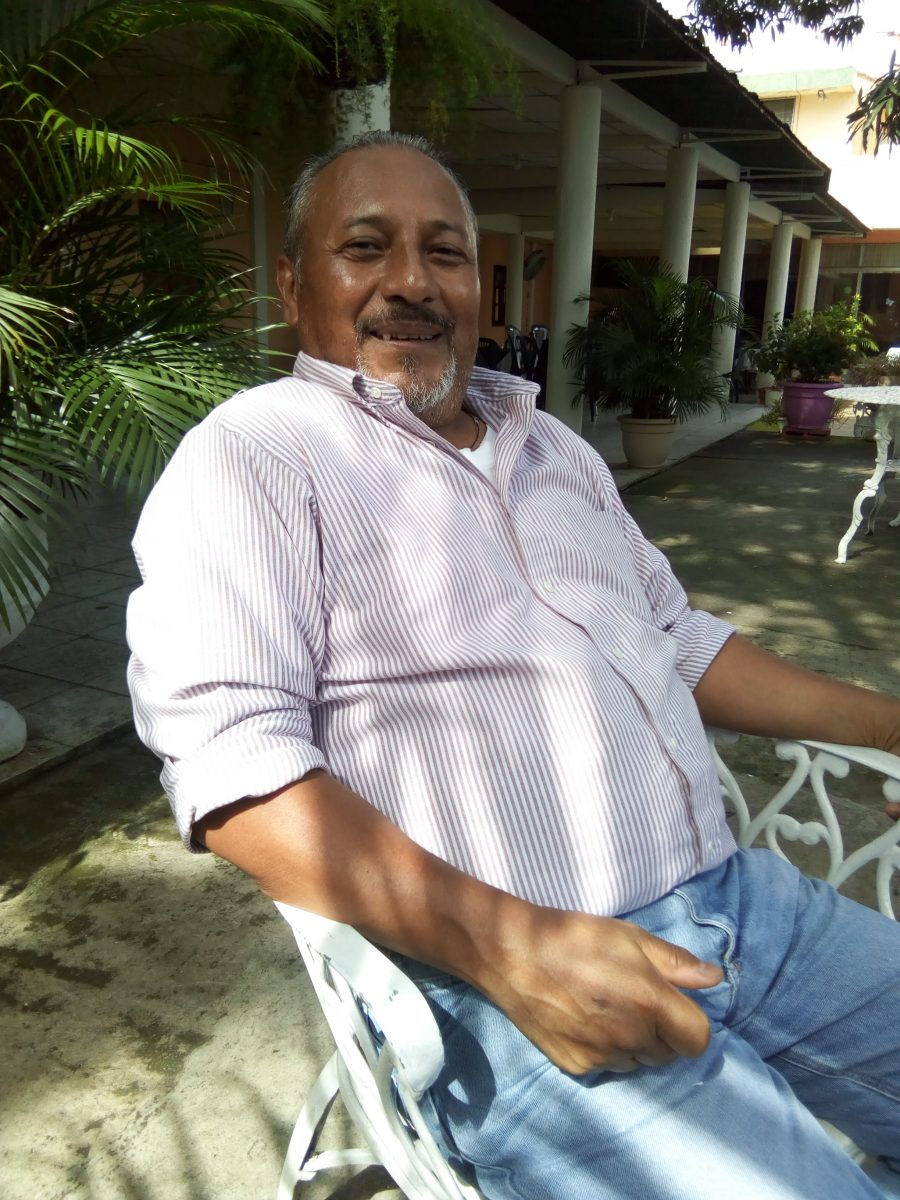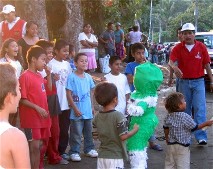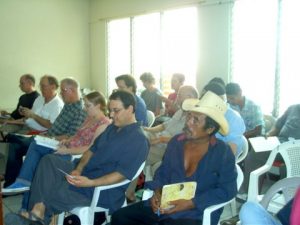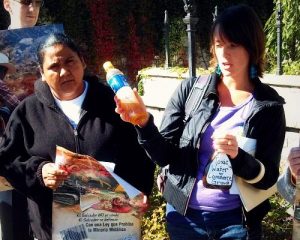Historical Memory, Politics, Sister Cities
Miguel Mejia on CRIPDES’ raid
(La versión en español aquí)
Last year, on October 2nd, I sat down with Miguel Mejia from SALVAIDE. Then, we talked about april 19th, 1989, the day military forces raided the CRIPDES’ offices and captured him, then-president Isabel Hernandez and others.
Our talk has been condensed for clarity.
We were in the middle of the conflict. Repressive security forces kept an eye on organizations such as CRIPDES. They perceived us as subversives, communists, front groups [for the FMLN]. As leaders we were persecuted and constantly under surveillance.
On that day, April 19th, I arrived to a bus stop at around seven thirty in the morning. There, I had to meet with the woman who today is my life partner. The moment I arrived, I noticed a parked van. Three guys were leaning against the wall and watching the bus stop. It seemed suspicious to me, and I thought of leaving but I didn’t want to leave my partner and her sisters. They would be captured even if I left, so I decided to stay.
She appeared a few moments later with her older sister, Gloria (who now lives in exile in Canada), my partner’s son, and a little sister with disabilities. They were taking them to school.
When we hopped on the bus, two of those men also got on. The van also started and it followed behind.
We went all the way to the back and I warned her that we were being followed. They were wearing civilian’s clothes, no IDs, perfectly capable of making us disappear.
My partner warned her sister so the kids could get off the bus and walk on their own to school. She decided against it and said she would walk with them as usual.
Then the van went ahead of the bus and stopped. My partner and I took advantage of the situation to get off and we made it all the way to the office.
There, we confirmed that her sister was captured after dropping the kids off. We went to the Catholic Church’s office Tutela Legal to denounce this. There we ran into my now-mother-in-law. She was there because they had also captured another sister of my partner who lived in San Bartolo.
We went back to CRIPDES and learned that the army had already gone to other organizations, FENASTRAS among them. At three o’clock in the afternoon, we were in a meeting with all our comrades assessing the situation, on edge because we could be next. Then, a young man interrupted the meeting to warn us that the army had surrounded the office.
Our colleagues closed the doors and managed to lock them with chains. They used food sacks as barricades and managed to keep them outside for a while.
A military truck was in front of the CRIPDES office blasting noise that pierced our brains and wouldn’t let us hear a thing. The U.S. Embassy was near-by, but nobody did a thing.
Meanwhile, we were writing down the names of all of those who were inside the office. That building was always packed, with people coming from communities all over the country. There were about 75 people there: women, elderly, wounded, in wheelchairs. We had to collect the names even of those who we only knew by their pseudonyms. We gave the list to a journalist and we managed an international denunciation, communicating through solidarity groups in the United States.
It was only after that that the army thought of cutting our phone line.
Around eight thirty in the evening, they forced open the doors and even the roof to enter the building from above.
We could not offer resistance because we were a legal group, fighting for refugees, denouncing bombings, captures and disappearances. Also because there were children, old people and wounded among us.
We could not even use the self-defense groups with their iron batons that they used to defend themselves against the anti-riot squads during protests.
So, they captured us. They beat us and put in the truck.
They took us to the Treasury Police (Policía de Hacienda).
Handcuffed and blindfolded I heard in my ear: “You managed to escape this morning, fucker.” I could feel the back of a knife on my neck.
By 1989, they could no longer keep you for over three days. By then, the Committee of Political Prisoners (COPPES) existed.
Nevertheless, when you were captured, they kept you stripped to your underwear, blindfolded, your hands cuffed behind you. Standing the whole time. They waged psychological warfare against you: they tortured someone next to you; threated to bring in your whole family, to kill them all; tell you they were going to throw you from a helicopter or they would beat you in the stomach in a way that would not leave marks but would cause internal damage. They did not allow you to go to the bathroom, they did not give you water, they did not let you sleep, they forced you to exercise or they put “the hood” on you, a bag with lime that they tightened so you were not able to breathe, while kneed you in the stomach so you would release whatever air you had left inside.
The torture rooms were small and with poor ventilation.
They even interrogated children to know who their parents were. One of the girls, perhaps already trained, answered “you are not to say that”. Toward dawn, one woman and the children were released downtown. The Red Cross picked them up.
Little by little, they started to release us.
Once freed, my partner was in bed for fifteen days because of the beatings. A colleague could not speak because of the way they beat him on the chest.
Six of us were not released. Three men and three women: Trini, a colleague from Suchitoto; Isabel Hernandez and Mirtala Lopez. They went to the Women’s prison. I was with Inocente Orellana and Jorge Olmedo (Trini’s son), who later was murdered while being a bus driver after the war. The three of us went to the San Vicente prison.
I had already been a political prisoner in 1987, when they put us all in Mariona, where we had established our own discipline, organization and we were divided by groups in what was known as “The Pedro Pablo Castillo Fifth Front”. Those of us who were there were eventually exchanged or pardoned, with the exception of twenty three comrades (including those who took part in the Zona Rosa attack). They were not able to maintain the organization and were eventually taken to different prisons.
By 1989 this front no longer existed and the three of us were also taken to different places. We were in Mariona for five days with regular inmates. Then, a pick-up took us to San Vicente, also with regular inmates. There, only Jorge was with me.
The leader of the cell is usually the one the warden trusts the most. We slept on the floor, under his bed. Our pillow was our backpack that held only a change of clothes.
All and all, the struggle was always recognized by the people. Most of the inmates respected you even if they didn’t share the struggle’s banner.
We were there for around six months.
There was a lot of international pressure and crooked judges were paid a certain amount to release us one by one.
I think they wanted to decapitate CRIPDES because it was a strong organization, for denouncing internationally and organizing displaced people. But we are still here. A little old and sick, but we are here.




